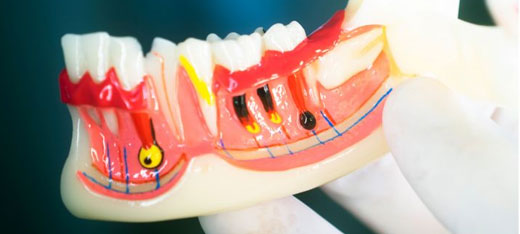What is tooth decay?

Tooth decay, also known as a cavity or cavity, is a common dental condition that occurs when bacteria in the mouth produce acids that attack the enamel teeth.
This can cause holes or cavities to form in the teeth. Here is some important information about tooth decay:
- Causes: the main causes of tooth decay are excessive consumption of sugars and starches, poor oral hygiene (poor brushing of teeth, insufficient use of dental floss) , as well as a genetic predisposition.
- Symptoms: The symptoms of tooth decay can vary depending on their severity, but they generally include tooth sensitivity to hot, cold or sugary foods, tooth pain, white or brown spots on the teeth, and possibly the formation of cavities. visible.
- Prevention: Prevention of tooth decay involves good oral hygiene, including regular tooth brushing (at least twice a day), l flossing to clean between teeth, a balanced diet with reduced sugar intake, and regular visits to the dentist for check-ups and professional dental cleanings.
- Treatment: Treatment of dental caries depends on the severity of the lesion. In mild cases, it may be possible to remineralize tooth enamel with fluorides. In more severe cases, the dentist will need to remove the decayed part of the tooth and fill it with a dental restorative material, such as a composite resin filling or dental amalgam.
- Complications: If tooth decay is not treated in time, it can progress and cause intense dental pain, dental infections, or even loss of teeth. the tooth. In severe cases, infections can spread to other parts of the body.
It is important to take tooth decay seriously and see a dentist at the first sign of a problem.
Prevention is the best approach, but appropriate dental treatments can also resolve existing dental caries problems.
0 comments
Recent articles
- What is tooth decay?
- Baby toothbrush
- Baby bottle tooth decay
- Have White Teeth Naturally
- Why oral hygiene?
- Gingivitis, sore gums
Categories
- Ampheris
- ampheris Silver Care
- antibacterien
- athletisme
- avoir-des-dents-blanches
- bactérie
- bacteries
- bacteries-dentaires
- bonne haleine
- brossage des dents
- brosse a dents
- brosse a dents enfant
- brosse a dents ionique
- brosse a dents manuelle
- brosse a dents silver care
- brosse-a-dents-bebe
- carie dentaire
- carie-du-biberon
- choisir une brosse à dents enfant
- comment se brosser les dents
- comment-avoir-des-dents-blanches
- comment-nettoyer-sa-prothese-dentaire
- contamination
- couleur tube de dentifrice
- covid 19
- dentifrice
- dentifrice dangereux
- dents dechaussees
- dents-blanches
- detartrage
- effet ionique
- escalade
- foot-ball
- gencive
- gencive qui saigne
- gencives qui saignent
- gingivite
- histoire-du-dentifrice
- hygiene
- hygiène dentaire
- importance-de-l-hygiene-dentaire
- invention de la brosse a dents
- le-sport-et-la-brosse-a-dents
- mauvaise haleine
- nettoyer-sa-prothese-dentaire
- parachutisme
- plaque dentaire
- plaque-dentaire
- postillons
- quelle est la meilleure brosse a dents
- qui a invente la brosse a dents
- salive
- santé buccodentaire
- sante-bucco-dentaire
- sante-buccodentaire
- silver care
- soins-dentaires
- tartre dentaire
- tartre-dentaire
- tête brosse a dents
- tete de brosse a dents

